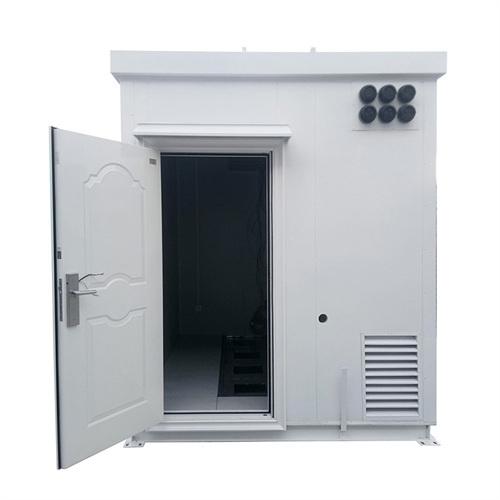Pros and cons of nuclear power plants and solar power generation

Pros and Cons of Nuclear Power Plants: Evaluating the Future of
Benefits of Nuclear Power Plants: A Closer Look at Clean Energy Generation. Nuclear power plants have been a topic of debate for many years, with proponents arguing that they provide

The pros and cons of nuclear energy in 2024
Nuclear energy is a reliable power source because it can be generated anytime. Unlike solar power, where you need the sun to shine, nuclear power doesn''t rely on weather. A nuclear power plant can produce energy nonstop, and you

Advantages and Challenges of Nuclear Energy
Constructing New Power Plants. Building a nuclear power plant can be discouraging for stakeholders. Conventional reactor designs are considered multi-billion dollar infrastructure projects. High capital costs,

10 Advantages and Disadvantages of Nuclear Energy
Development costs of nuclear energy remain comparable to those of wind or solar power, while operational expenses are notably lower than fossil fuel alternatives. Front-end costs are significantly lower compared to

Comparison between solar energy and nuclear energy
Nuclear energy and solar energy are two important energy sources that can coexist perfectly. However, there are differences between them that imply advantages and disadvantages in different situations.

Can space-based solar power really work? Pros and cons. | Space
"The thing with space based solar power is that very high levels of power can be delivered, similar to nuclear power plants," Wilson said. "Most other renewable energy

The pros and cons of nuclear energy in 2024
Unlike solar power, where you need the sun to shine, nuclear power doesn''t rely on weather. A nuclear power plant can produce energy nonstop, and you won''t have to worry about lower output or delays in production. Creates jobs.

Energy Shift: Nuclear vs. Solar Energy – What''s the
Two low-carbon energy techs – nuclear and solar power – have emerged as major contenders. This article will compare nuclear and solar energy, looking at their pros and cons. It will also check out recent innovations that

Exploring the Pros and Cons of Nuclear Energy
Explore the pros and cons of nuclear energy, diving into its high-energy output, environmental impact, cost factors, and potential risks involved. The first successful operation of a fully functional nuclear power plant was a

Nuclear Vs. Solar: The Pros and Cons of Both
Differences. Solar plants take less time to construct and set up than nuclear plants, and the production of solar energy is much quicker than nuclear energy. A solar plant costs much less than a nuclear facility because it

The Advantages and Disadvantages of Solar Energy
However, this renewable still has some aspects, mainly related to land use and waste generation, that can still harm the environment. First and foremost, solar power plants require space. For example, a solar power plant

6 FAQs about [Pros and cons of nuclear power plants and solar power generation]
What are the pros and cons of nuclear power?
Nuclear power is a low-cost energy source, it’s reliable, the industry creates jobs, it produces zero-carbon emissions, and has a high energy density. Nuclear power cons include the negative environmental impact it has, it’s water-intensive, it poses risks of nuclear accidents, it produces radioactive waste, and it’s a non-renewable energy source.
What are the disadvantages of nuclear energy?
Here are four disadvantages of nuclear energy: Although nuclear energy is a "clean" source of power, it is technically not renewable. Current nuclear technology relies on uranium ore for fuel, which exists in limited amounts in the earth's crust.
Why is nuclear energy a good alternative to solar power?
Along with the power itself being cheap, nuclear energy also has low operating costs. The only expensive part of nuclear energy is building the power plants to store it all. Nuclear energy is a reliable power source because it can be generated anytime. Unlike solar power, where you need the sun to shine, nuclear power doesn’t rely on weather.
Is nuclear energy a good idea?
There has been a lot of negativity surrounding the use of nuclear energy, but the power source has several benefits. The cost of nuclear energy has gone down tremendously in the last decade, dropping to $29.13 per megawatt as of 2021. This means a single kWh of nuclear energy only costs $0.03 to produce!
What are the advantages of nuclear energy?
Nuclear energy offers the following advantages: 1. Enhanced Energy Capacity One kilogram of 4% enriched fuel-grade uranium can produce the equivalent of 100 tons of high-grade coal, replacing approximately 60 tons of oil consumption when a facility goes online. Provides a stable and reliable energy source compatible with grids worldwide. 2.
Can a nuclear power plant produce energy nonstop?
A nuclear power plant can produce energy nonstop, and you won’t have to worry about lower output or delays in production. Nuclear power is one of the largest energy sources known to man, and it creates an entire industry of workers. A single nuclear power plant employs between 400 and 700 employees.
Related Contents
- Pros and cons of solar power generation materials
- Pros and cons of solar power generation in summer
- The pros and cons of Guangfu solar power generation
- Hydropower wind power solar power nuclear power generation
- Can nuclear waste water be thrown into solar power generation
- Benefits of Hanergy s solar rooftop power generation
- Vietnam Civilian Solar Power Generation
- Solar power generation electrician power outage
- Factory off-grid solar power generation system
- Solar power generation development space
- Solar power generation has benefits for early pregnancy
- Regional solar power generation compensation